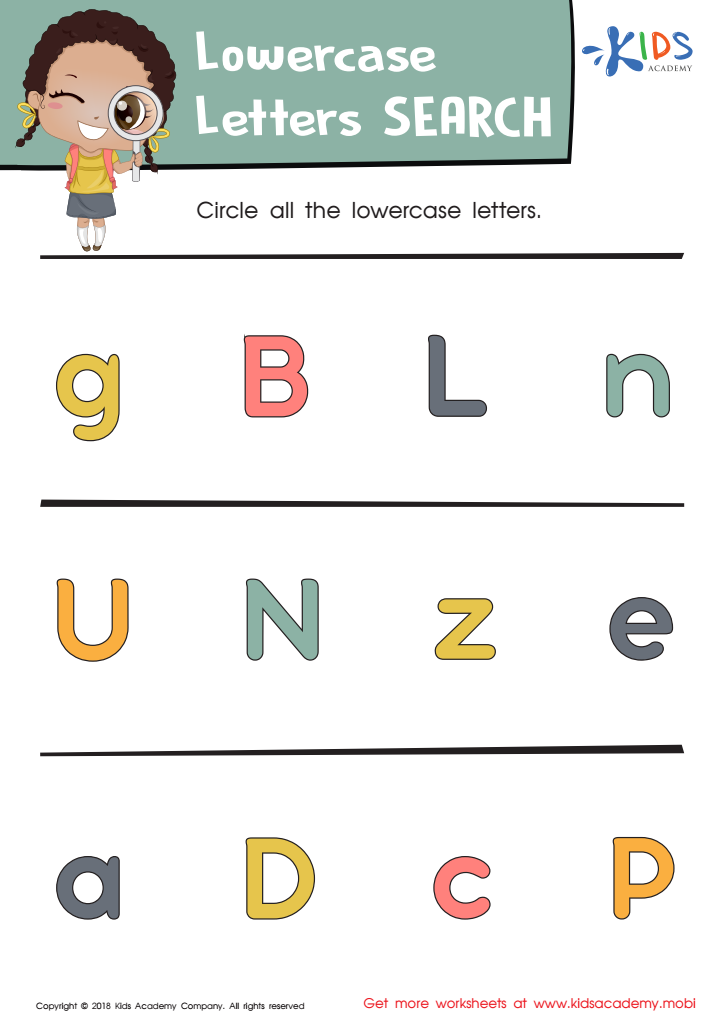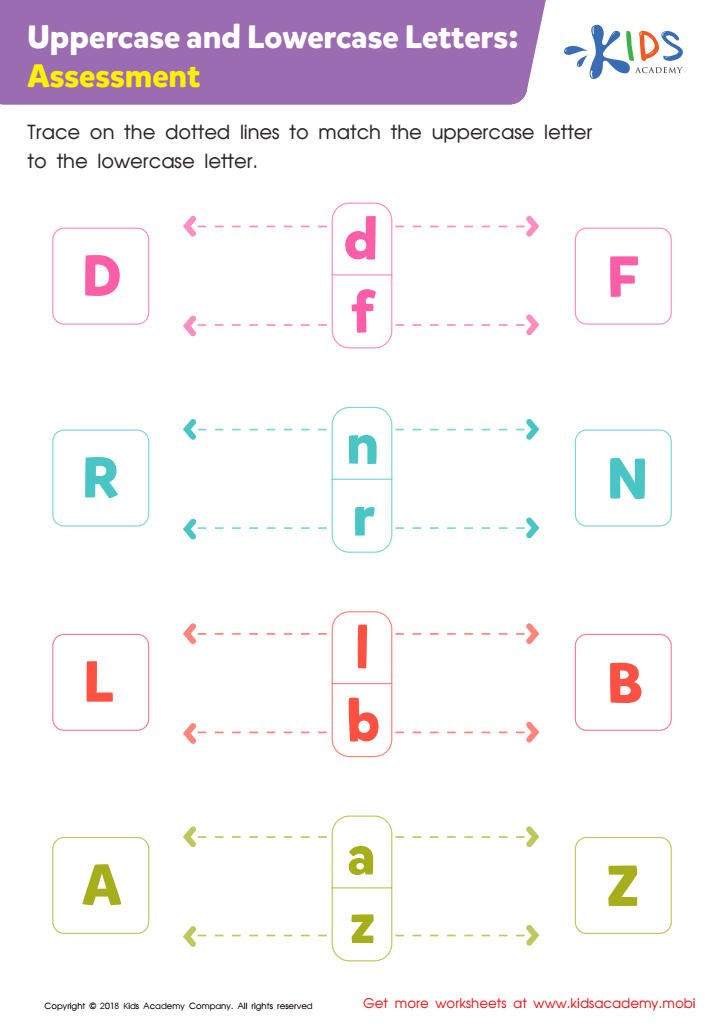Easy Lowercase/Small Letters worksheets activities for 5-Year-Olds
2 filtered results
-
From - To


Lowercase Letters Search: Assessment Worksheet


Uppercase and Lowercase Letters: Assessment Worksheet
Easy Lowercase/Small Letters worksheets activities are an invaluable resource in the foundational stage of childhood education. These activities are designed to cater to young learners, making the process of familiarizing and mastering the shapes and sounds of lowercase letters both engaging and effective. There are several reasons why these worksheets are particularly useful in teaching children.
Firstly, Easy Lowercase/Small Letters worksheets activities introduce children to the concept of lowercase letters in a structured, yet fun manner. Through various exercises such as tracing, matching, and identifying, children gradually build their understanding and recognition of each letter. This foundational knowledge is crucial, as lowercase letters constitute a significant portion of our written language.
Moreover, these worksheets are crafted to enhance fine motor skills alongside literacy skills. As children trace and write the letters, they develop hand-eye coordination and pencil control, which are essential for future writing tasks. The simplicity of these worksheets ensures that children are not overwhelmed, making the learning process enjoyable and boosting their confidence.
The versatility of Easy Lowercase/Small Letters worksheets activities allows for them to be used in various educational settings. Whether it’s in a classroom, homeschooling, or even during casual learning sessions at home, these worksheets are easily accessible and adaptable to different learning paces and styles. This flexibility makes them a favorite tool among educators and parents alike.
Additionally, engaging with these worksheets fosters a love for learning and literacy from an early age. By presenting lowercase letters through playful activities, children naturally develop an interest in reading and writing. This early enthusiasm is a cornerstone for lifelong literacy and academic success.
In conclusion, Easy Lowercase/Small Letters worksheets activities are an indispensable asset in the education of young learners. They lay a solid foundation for literacy, promote essential motor skills, adapt to varied learning environments, and ignite a passion for learning. Through these activities, children are set on a path towards academic achievement and a love for language.

 Assign to My Students
Assign to My Students




















